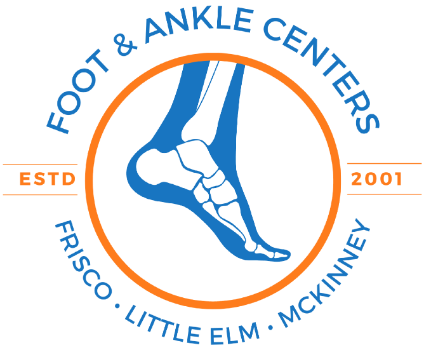Understanding the Severity of Charcot Neuropathy at Foot and Ankle Centers
Feb 19, 2025 | By: Foot & Ankle Centers of Frisco and Plano
Charcot neuropathy, also known as Charcot foot, is a severe condition that primarily affects individuals with peripheral neuropathy, a condition characterized by nerve damage in the extremities. This disorder can lead to the progressive deterioration of bones, joints, and soft tissues in the feet and ankles. Without timely diagnosis and appropriate treatment, Charcot neuropathy can result in severe complications, including disability and even amputation. At Foot & Ankle Centers, we emphasize the importance of early detection and proper management to prevent the devastating consequences associated with this condition.
One of the most alarming aspects of Charcot neuropathy is that it often develops silently in its early stages. Individuals with peripheral neuropathy may not feel pain due to nerve damage, making it difficult to recognize the onset of Charcot foot. As the condition progresses, it causes the bones in the foot to become weak and brittle. Even minor trauma, such as a simple twist or repetitive stress from walking, can lead to fractures and dislocations. Over time, this can result in significant deformities, altered foot mechanics, and compromised mobility.
The potential consequences of untreated Charcot neuropathy are both severe and life-altering. Progressive bone and joint damage is one of the most significant risks. As the bones weaken, they may collapse or shift out of alignment, leading to deformities such as a "rocker-bottom" foot, where the arch of the foot collapses and takes on a convex shape. This deformity not only affects the appearance of the foot but also impairs its function, making walking difficult and increasing the risk of further injuries.
Another major concern with untreated Charcot neuropathy is the increased risk of ulcers and infections. The structural changes in the foot can create pressure points and areas of friction, which can cause skin breakdown and the development of ulcers. These open sores are particularly dangerous for individuals with diabetes or poor circulation, as they are more susceptible to infections. Infections can quickly spread to the bones (osteomyelitis) and soft tissues, leading to serious complications that may require aggressive medical intervention, including hospitalization and surgery.
Chronic pain and discomfort are also common outcomes of advanced Charcot neuropathy. While the early stages may be painless due to nerve damage, the later stages often involve persistent pain as a result of joint instability, deformities, and secondary complications like ulcers and infections. This chronic pain can significantly impact a person's quality of life, limiting their ability to perform daily activities and enjoy an active lifestyle.
Loss of mobility is another devastating consequence of untreated Charcot neuropathy. As the foot structure deteriorates and deformities develop, walking becomes increasingly difficult. Individuals may require assistive devices such as braces, crutches, or wheelchairs to move around. In severe cases, the loss of mobility can lead to social isolation, depression, and a decline in overall health due to reduced physical activity.
Perhaps the most serious risk associated with untreated Charcot neuropathy is the elevated risk of amputation. When infections become uncontrollable or when the structural damage to the foot is too severe to repair, amputation may be the only option to prevent life-threatening complications. Amputation has profound physical, emotional, and psychological effects, and it significantly impacts an individual's independence and quality of life.
Given the severe consequences of untreated Charcot neuropathy, early diagnosis and proper care are critical. Recognizing the signs and symptoms of the condition can make a significant difference in outcomes. Early symptoms may include swelling, redness, warmth in the affected foot, and changes in foot shape. These signs can easily be mistaken for other conditions like infection or gout, so it's essential to seek medical attention promptly if any of these symptoms occur, especially if you have a history of peripheral neuropathy or diabetes.
At Foot & Ankle Centers, our team of specialists is experienced in diagnosing and managing Charcot neuropathy. Diagnosis typically involves a thorough clinical examination, medical history review, and imaging studies such as X-rays, MRI, or CT scans to assess the extent of bone and joint damage. Early detection allows for prompt intervention, which can help prevent further complications.
Treatment for Charcot neuropathy focuses on stabilizing the foot, preventing further damage, and promoting healing. In the early stages, immobilization with a cast or brace is often necessary to offload weight from the affected foot and allow the bones to heal. Non-weight-bearing status with the use of crutches or a wheelchair may be recommended to reduce stress on the foot. As the condition stabilizes, custom orthotics, specialized footwear, and physical therapy can help support the foot and improve mobility.
In cases where deformities have already developed or if there is severe joint instability, surgical intervention may be required to correct the alignment and stabilize the foot. Surgery aims to restore function, reduce pain, and prevent the progression of complications. Post-surgical care often includes rehabilitation and ongoing monitoring to ensure proper healing and prevent recurrence.
Preventive care is also a key component in managing Charcot neuropathy, especially for individuals at high risk. Regular foot examinations, proper foot hygiene, wearing appropriate footwear, and controlling underlying conditions such as diabetes can significantly reduce the risk of developing this condition. Patient education is essential in helping individuals recognize early warning signs and understand the importance of seeking medical attention promptly.
Charcot neuropathy is a serious condition that requires a proactive and comprehensive approach to management. Early diagnosis, proper treatment, and preventive care are essential for minimizing the risk of complications and maintaining a good quality of life. If you or a loved one are experiencing symptoms of Charcot neuropathy or have concerns about foot health, contact Foot & Ankle Centers today to schedule an appointment. Our dedicated team is here to provide expert care and support every step of the way.


Leave a comment
0 Comments